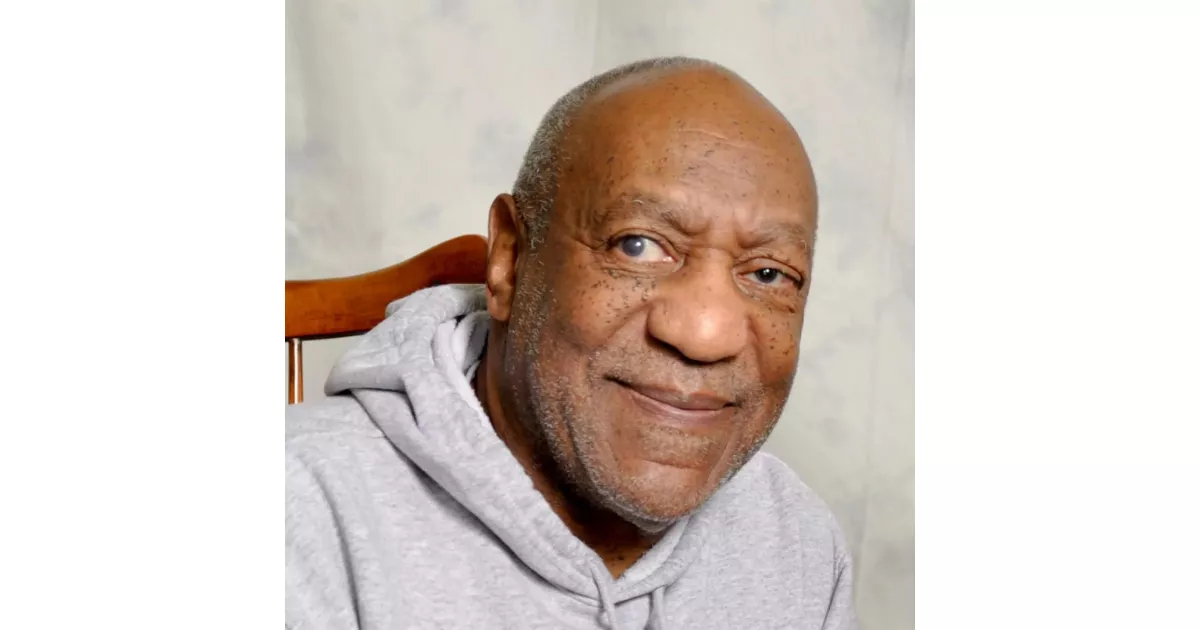From career breakthroughs to professional milestones, explore how Bill Cosby made an impact.
William Henry Cosby Jr. is a former American comedian, actor, and media personality. He achieved fame in film, television, and stand-up comedy, most notably as Cliff Huxtable in The Cosby Show. Cosby's fatherly image and long career made him a pop culture icon. However, starting in 2014, numerous allegations of sexual assault surfaced, leading to the end of his career and a tarnished reputation.
1965: Starring Role in I Spy
In 1965, Bill Cosby began starring in the television show I Spy opposite Robert Culp.
1965: First Advertisement for White Owl Cigars
In 1965, Cosby's first advertisement was for White Owl cigars. He liked their tagline, "We're going to get you." Sales of the product rose, despite the stigma around using a black spokesperson.
1966: Emmy Award for I Spy
In 1966, Bill Cosby became the first African American to win an Emmy Award for acting, winning the Primetime Emmy Award for Outstanding Lead Actor in a Drama Series for I Spy.
1967: Release of "Little Ole Man (Uptight, Everything's Alright)"
In 1967, Bill Cosby released the single "Little Ole Man (Uptight, Everything's Alright)" from his album Silver Throat: Bill Cosby Sings, which charted on the Billboard Hot 100.
December 1968: Publication of "The Regular Way" in Playboy
In December 1968, Bill Cosby's story, "The Regular Way," was featured in Playboy magazine.
1968: End of I Spy
In 1968, Bill Cosby's role in the television show I Spy ended.
1969: Starring in The Bill Cosby Show
In 1969, Bill Cosby began starring in the sitcom The Bill Cosby Show.
1971: Starring in Man and Boy and The Electric Company
In 1971, Bill Cosby starred in the western film Man and Boy and also starred in the original cast of The Electric Company alongside Rita Moreno and Morgan Freeman.
1971: End of The Bill Cosby Show
In 1971, the sitcom The Bill Cosby Show, starring Bill Cosby, ended after two seasons.
1972: Creation of Fat Albert and the Cosby Kids
In 1972, Bill Cosby created, produced, and hosted the animated comedy television series Fat Albert and the Cosby Kids.
1973: Departure from The Electric Company
In 1973, Bill Cosby left the original cast of The Electric Company.
1974: Starring in Uptown Saturday Night
In 1974, Bill Cosby starred in Sidney Poitier's crime comedy Uptown Saturday Night.
1974: Promoting Jell-O Pudding for General Foods
In 1974, Cosby began promoting Jell-O pudding for General Foods. Sales responded immediately to the Cosby advertising, with growth after what had been a long decline.
1975: Starring in Let's Do It Again
In 1975, Bill Cosby starred in Sidney Poitier's crime comedy Let's Do It Again.
1976: Starring in Mother, Jugs & Speed
In 1976, Bill Cosby starred in the comedy Mother, Jugs & Speed.
1977: Starring in A Piece of the Action
In 1977, Bill Cosby starred in Sidney Poitier's crime comedy A Piece of the Action.
1978: Starring in California Suite
In 1978, Bill Cosby starred in Neil Simon's California Suite alongside Richard Pryor.
1979: Hosting the Los Angeles Playboy Jazz Festival Begins
In 1979, Bill Cosby began hosting the Los Angeles Playboy Jazz Festival.
1979: Coca-Cola Campaign: "Have a Coke and a Smile"
In 1979, Cosby appeared in commercials for Coca-Cola's "Have a Coke and a Smile" campaign and made a guest appearance at the Great Get-Together.
1979: Introduction of Pudding Pops
In 1979, General Foods introduced Pudding Pops, the company's first frozen dessert product. With Cosby as spokesperson, it sold US$100 million its first year.
1981: "Have a Coke and a Smile" Continuation
In 1981, the Coca-Cola "Have a Coke and a Smile" campaign with Cosby continued.
1982: "Coke Is It" Campaign
In 1982, Cosby returned as Coca-Cola's spokesperson in its "Coke Is It" campaign, a series of commercials mocking the Pepsi Challenge.
1983: Release of Bill Cosby: Himself
In 1983, Bill Cosby's comedy film Bill Cosby: Himself was released.
September 1984: Debut of "The Cosby Show"
In September 1984, "The Cosby Show" debuted, marking Cosby's greatest television success. Cosby co-produced the series, held creative control, and was involved in every aspect of production, incorporating family-oriented humor. The show drew parallels to Cosby's own life, with characters similar to him and his wife.
1985: The Cosby Show as Number One
From 1985, The Cosby Show was rated as the number-one show in America.
1985: End of Fat Albert and the Cosby Kids
In 1985, the animated comedy television series Fat Albert and the Cosby Kids, which Bill Cosby created, produced and hosted, ended.
1987: Airing of A Different World
In 1987, Bill Cosby produced the spin-off sitcom A Different World.
1987: Release of "Leonard Part 6"
In 1987, Cosby returned to film with the spy spoof "Leonard Part 6". Despite writing the story and being the producer, Cosby denounced the film during production and warned audiences to avoid it. The film was the first project for Columbia to be greenlighted by studio executive David Puttman.
1989: Kraft General Foods Merger
In 1989, despite the merger of General Foods into Kraft, the then-newly merged company Kraft General Foods let Cosby remain with Jell-O as their spokesperson.
1989: The Cosby Show as Number One
Until 1989, The Cosby Show was rated as the number-one show in America.
1990: Endorsement of the 1990 United States census
In 1990, Cosby endorsed the United States census.
1992: Post-"Cosby Show" Projects
In 1992, after "The Cosby Show" ended, Cosby started a revival of the game show "You Bet Your Life" (1992-93) and several TV movie projects.
1993: Appearing in The Meteor Man
In 1993, Bill Cosby appeared in minor roles in Robert Townsend's superhero comedy The Meteor Man.
1993: End of A Different World
In 1993, the spin-off sitcom A Different World, produced by Bill Cosby, ended.
1994: Starring in The Cosby Mysteries
In 1994, Bill Cosby starred in The Cosby Mysteries.
1994: TV movie: I Spy Returns and The Cosby Mysteries
In 1994, Bill Cosby was involved in the TV movie "I Spy Returns" and "The Cosby Mysteries".
February 6, 1995: Hosted CBS special, Kids Say the Darndest Things
On February 6, 1995, Bill Cosby hosted a CBS special, "Kids Say the Darndest Things", which was followed as a full-season show.
1995: End of The Cosby Mysteries
In 1995, The Cosby Mysteries, starring Bill Cosby, ended.
1996: Appearing in Jack
In 1996, Bill Cosby appeared in minor roles in Francis Ford Coppola's coming of age film Jack.
1996: New Show for CBS, Cosby
In 1996, Bill Cosby started a new show for CBS, "Cosby", again co-starring Phylicia Rashād. The show centered on Cosby as Hilton Lucas, who tries to find a new job after being downsized.
January 9, 1998: Hosting "Kids Say the Darndest Things" Full-Season Show
On January 9, 1998, Bill Cosby hosted a full-season show, "Kids Say the Darndest Things", on CBS.
1998: Hosting Kids Say the Darndest Things
In 1998, Bill Cosby began hosting Kids Say the Darndest Things.
1998: Lighting of Jell-O Billboard in Times Square
In 1998, Cosby was present for the lighting of the Jell-O brand's first billboard in New York's Times Square.
1999: Debut of "Little Bill" on Nickelodeon
In 1999, "Little Bill", a series for preschoolers created by Cosby, debuted on Nickelodeon. The show was a semi-biographical representation of Cosby's childhood in Philadelphia.
1999: Creation of Little Bill
In 1999, Bill Cosby created and produced the animated children's program Little Bill.
1999: Final Year in Jell-O Advertising
In 1999, Cosby's 25th year as spokesman for Jell-O was also the final year he appeared in its advertising. The company distributed 120,000 copies of his picture book series, Little Bill, into American public libraries.
April 28, 2000: Last Episode of Cosby
On April 28, 2000, the last episode of the show Cosby aired.
June 23, 2000: Final Episode of "Kids Say the Darndest Things"
On June 23, 2000, the final episode of "Kids Say the Darndest Things", hosted by Bill Cosby, aired.
November 2000: "Little Bill" Renewed
In November 2000, the network renewed the popular program Little Bill.
2000: End of Cosby and Kids Say the Darndest Things
In 2000, the sitcom Cosby, starring Bill Cosby, ended. Bill Cosby also finished hosting Kids Say the Darndest Things.
2001: Publication of New Book and Commencement Addresses
In 2001, Bill Cosby published a new book and delivered commencement addresses at Morris Brown College, Ohio State University, and Rensselaer Polytechnic Institute.
2001: Jell-O Official State Snack
In 2001, Cosby appeared at the Utah State Senate to designate Jell-O the official state snack.
2002: Longest-Serving Celebrity Spokesperson
As of 2002, Cosby held the record for being the longest-serving celebrity spokesperson for a product, through his work with Jell-O.
2002: Longest-Standing Celebrity Endorsement
As of 2002, Cosby's time with Jell-O was considered the longest-standing celebrity endorsement in American advertising history.
2003: Appearance in Baadasssss!
In 2003, Bill Cosby made an appearance in Mario Van Peebles film Baadasssss!.
May 2004: Public Remarks Critical of African Americans
In May 2004, Bill Cosby made public remarks critical of African Americans who prioritize sports, fashion, and "acting hard" over education, self-respect, and self-improvement. He urged African American families to educate their children on American culture and teach them better morals at a younger age.
December 2004: Release of "Fat Albert" Film
In December 2004, the live-action film "Fat Albert," co-written and executive produced by Cosby, was released in theaters. The film was based on the popular character from his 1970s cartoon series.
2004: Involvement with The Jazz Foundation of America
In 2004, Bill Cosby became actively involved with The Jazz Foundation of America and hosted its annual benefit, A Great Night in Harlem.
2004: Promotional Visit to Jell-O Gallery
In 2004, Cosby made a promotional visit to the Jell-O Gallery.
2004: End of Little Bill
In 2004, the animated children's program Little Bill, created and produced by Bill Cosby, ended.
May 2007: Cosby Speaks at High Point University Commencement
In May 2007, Bill Cosby spoke at the commencement of High Point University.
2008: Remarks on Crime and Moral Behavior
In 2008, Bill Cosby mentioned cities with high crime rates affecting young African American men and reiterated that African American parents were failing to instill proper moral behavior. He later expressed strong approval of Barack Obama after his election.
2009: Hosted Comedy Gala at Just for Laughs
In the summer of 2009, Bill Cosby hosted a comedy gala at Montreal's Just for Laughs, which is the largest comedy festival in the world.
2010: "Hello Jell-O" Campaign
In 2010, Cosby returned to Jell-O as executive producer for the company's "Hello Jell-O" campaign. In return, the brand sponsored his weekly web show OBKB, a children's interview series similar to Kids Say the Darndest Things.
2011: President's Award for Contributions to Advertising
In 2011, Cosby won the President's Award for Contributions to Advertising from the Advertising Hall of Fame.
2012: Hosting the Los Angeles Playboy Jazz Festival Ends
In 2012, Bill Cosby concluded his run hosting the Los Angeles Playboy Jazz Festival.
2014: Comics credit Cosby as innovator
Before the 2014 allegations, younger, well-established comics like Jerry Seinfeld had credited Bill Cosby as an innovator both as a practitioner of stand-up comedy, as well as a person who paved the way for comics to break into sitcom television.
2014: End of Advertising Roles Due to Allegations
In 2014, Cosby stopped appearing in advertising roles due to the widespread publicization of his sexual assault allegations.
2021: Post-Prison Comeback Plans
Following his release from prison in 2021, Bill Cosby planned a comeback, including a comedy tour and a five-part docuseries covering his legacy and prison experience, as well as plans for a book. However, these plans were later put on hold.
2022: Release of "We Need to Talk About Cosby" Documentary
In 2022, W. Kamau Bell released the Showtime documentary "We Need to Talk About Cosby", which explores Cosby's life and career, addressing the sexual assault allegations through conversations with comedians, journalists, and survivors. Cosby's representative denied all allegations, stating Cosby stands with the excluded and disenfranchised.
Mentioned in this timeline
CBS Broadcasting Inc CBS is a prominent American commercial broadcast...
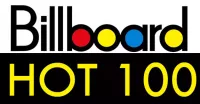
The Billboard Hot is the primary music chart in the...
California is a U S state on the Pacific Coast...
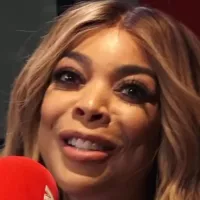
Wendy Williams is an American former broadcaster media personality and...
CNN Cable News Network is a multinational news organization founded...
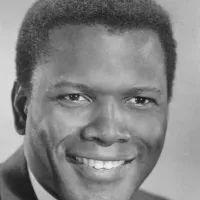
Sidney Poitier was a trailblazing Bahamian-American actor director activist and...
Trending

3 months ago Ben Shelton faces Kamil Majchrzak at ATP Basel after Rune's setback: Predictions.
Bitcoin is a decentralized cryptocurrency created in by the pseudonymous Satoshi Nakamoto Launched in it operates on an open-source platform...
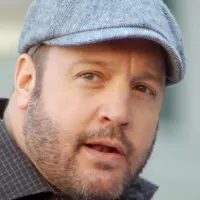
3 months ago Kevin James's Comedy Explored: Netflix Shows, Viral TikTok, and Enduring Appeal.
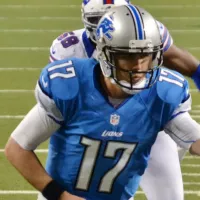
2 months ago Kellen Moore's Impact: Saints' QB Change and 2026 NFL Draft Predictions Emerge
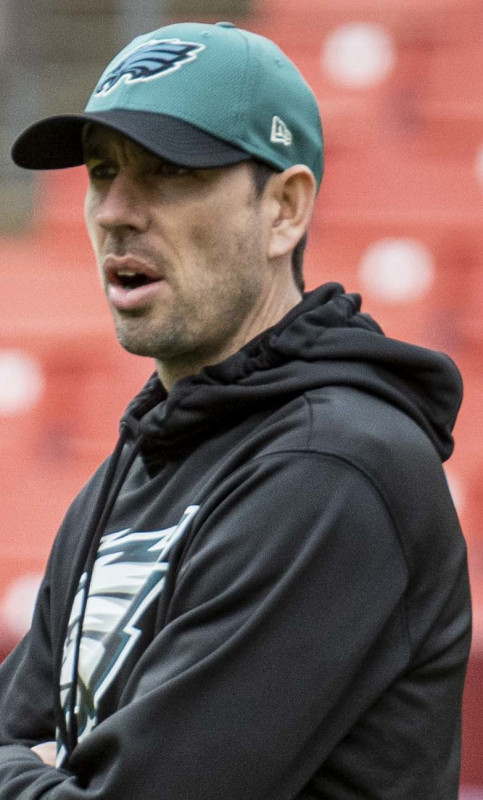
Shane Steichen is an American football coach currently serving as the head coach for the Indianapolis Colts NFL Prior to...
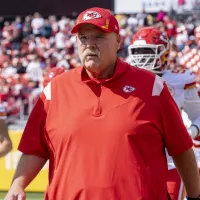
2 months ago Andy Reid Addresses Media, Mahomes Allegedly Takes a Shot, Chiefs Emphasize Run
Popular
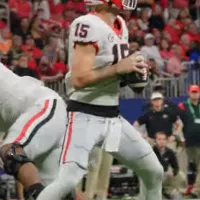
Carson Beck is an American college football quarterback currently playing...
Curt Cignetti is an American college football coach currently the...

XXXTentacion born Jahseh Dwayne Ricardo Onfroy was a controversial yet...
WWE Raw a professional wrestling television program by WWE airs...

Stranger Things created by the Duffer Brothers is a popular...

Kristi Noem is an American politician who has served as...
